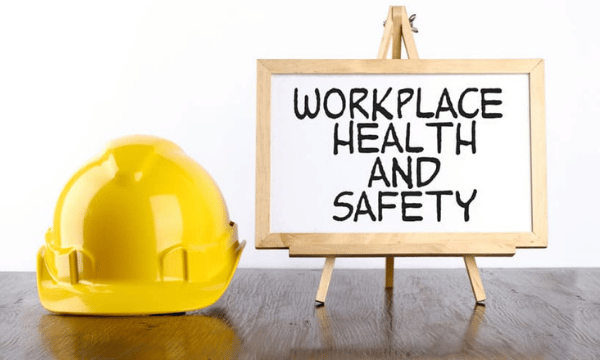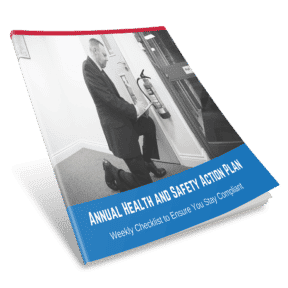Workplace Health And Safety Legislation: A Beginner’s Guide
Workplace Health and Safety Legislation | A Beginners Guide
Understanding health and safety legislation is key to maintaining a safe and healthy workplace. All workplaces in the UK must meet the criteria established by the legislation and will be expected to provide evidence of health and safety practices at work. This article will guide you through understanding health and safety legislation so that you can meet the required criteria.

What Are Health And Safety Regulations?
According to legislation, all workplaces must meet health and safety regulations that aim to protect employees, customers, and any other person who may enter the building. In order to achieve a good score in a health and safety audit, workplaces must meet these regulations.
The regulations for each individual workplace will differ depending on the type of business in question, however, some typical regulations that most workplaces need to meet can include:
- Providing adequate workplace welfare facilities such as toilets and refreshments and drinking water
- Good lighting, ventilation, and heating
- Prepare a health and safety policy
- Undertaking regular risk assessments
- Provide suitable and sufficient first-aid arrangements
- Reporting of accidents, illnesses and near misses
- Providing health and safety information, instruction, training and supervision to staff and contractors
- Providing employees with personal protective equipment as required by a risk assessment
All workplaces will be required to meet varying regulations under the health and safety legislation, so it is important to understand exactly what these regulations are.
Conducting Risk Assessments
All workplaces will present some risks to employees, so it is almost impossible to eliminate all hazards from a workplace! Instead, workplaces should be able to show that they are aware of these hazards and that practices have been put in place to protect employees from being harmed by them. The best way to do this is to carry out regular risk assessments in which all workplace hazards should be clearly stated, along with how to best deal with them to prevent injury or ill health. If you employ 5 or more employees these risk assessments must be documented.
Who Enforces Health And Safety Legislation?
In the UK, health and safety legislation is enforced by the Health and Safety Executive (HSE) or by local authority environmental health officers, depending on your individual workplace. If your workplace is classed as a higher risk, you will be assessed by the HSE. Workplaces that are higher risk may include hospitals, construction sites, or agricultural businesses.
Under the Health and Safety at Work etc. Act 1974, local authority environmental officers or the HSE are entitled to inspect the workplace and to investigate reports of health and safety issues. These bodies are also able to enforce health and safety laws and hold workplaces accountable if they fail to meet regulations.
Employers' Duty Of Care
By law, employers are responsible for the health and safety of their employees. Employees are expected to do whatever is needed to achieve this and must also protect anyone who may be affected by the business. To protect employees, employers should give adequate and up-to-date information and instruction about health and safety and should carry out regular risk assessments. Employers must also make sure that training and supervision is provided on how to deal with any risks highlighted in the risk assessment. Employers must also display a poster outlining health and safety law in the workplace.
Workplace Health And Safety
Workplaces often present more risks than non-commercial properties, so separate health and safety guidelines are put in place to protect employees. Workplace Health Safety and Welfare Regulations (1992) cover a wide range of workplace health and safety guidelines that all workplaces should understand and actively aim to meet.

What Incidents Do Employers Have To Report Under RIDDOR?
Under health and safety legislation, employers must report any workplace-related deaths, serious injuries or cases of disease. Any near misses involving employees should be recorded. This remains the case for all workplaces, no matter where the employees were working during the time of the incident. Reporting incidents quickly is the best way to resolve any problems and abide by the law.
Health And Safety Training For The Team
The best way to ensure that your workplace is in line with health and safety legislation is to provide regular health and safety training for all members of the team. Training will prepare all team members to deal with any risks and will ensure that they fully understand all workplace health and safety regulations and practices.
If you have a question or enquiry about health and safety please call the team on 01452 502113 or complete our enquiry form.
Find this helpful?
Signup to our email notifications to receive alerts when we publish new blogs. We promise not to spam your inbox, you will just get a short snappy intro to Health and Safety articles we think you will love.
"*" indicates required fields

Annual Health and Safety Action Plan
If you’ve got a question or query, please contact our super friendly team, they will be delighted to help you!
Simply get in touch via phone or email.

Free
Resources &
Downloads
Informative. Useful. Practical.
Here at Envesca we believe that we are good at giving proactive, sensible and useful advice. Below you will find some free resources that you can download on a host of subjects that will help you and your business.
Training Available
Envesca offer a number of different training courses, which offer advice and guidance on these topics.





